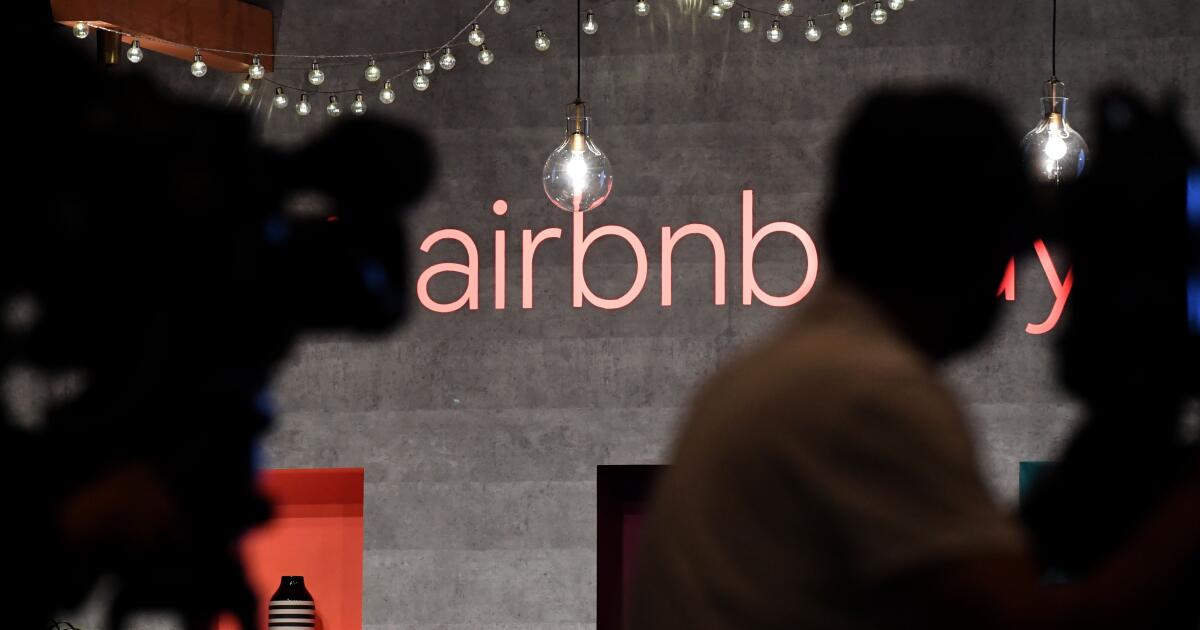It’s a PR Stunt: Some Fire Victims Claim Airbnb’s Free Housing Vouchers are Useless
Avoiding the Red Tape, Finding Alternative Solutions
In the wake of the deadly fires that ravaged Southern California in January, Airbnb received widespread praise for its voucher program that offered free stays for displaced victims. Local and national media outlets lauded the effort, directing thousands of refugees to apply.
A Mixed Bag of Experiences
But for many who needed the housing, reviews weren’t as glowing. Some said they applied but never heard back. Others got a voucher but said it was essentially useless due to restrictions and a seven-day expiration date.
Avoiding the Red Tape
Plenty of victims have been helped by the program. Airbnb.org, a nonprofit funded by Airbnb that teamed with 211 L.A. to provide the free stays, said it received 34,000 applications and sent out roughly 11,000 vouchers. It’s unclear how many of those vouchers were used, but the nonprofit said more than 60,000 free nights have been booked by people affected by the fires.
Restrictions and Limitations
Those not able to cash in, however, see the program as one of two things: a genuine offer hamstrung by excessive red tape, or a half-hollow gesture meant to rack up free PR in the midst of a historic disaster.
A Case Study: Todd Smoyer’s Experience
Todd Smoyer, who received a voucher after his house burned down in Altadena but wasn’t able to use it, said, “If it seems too good to be true, it probably is. It just feels like a PR stunt.” Smoyer was working in Hollywood when the Santa Ana winds started blowing on Jan. 7. Out of caution, his husband booked an Airbnb in Mid-City earlier that day just in case a fire started. A few hours later, Eaton Canyon erupted. Smoyer bolted home to grab food for their two dogs and fled the neighborhood around 8 p.m. On his way out, he called his parents, sobbing. “I knew there was no chance the house would survive,” he said.
A Second Case Study: Eleanor Green’s Experience
Eleanor Green evacuated from her home in La Cañada Flintridge on Jan. 8, fleeing to Claremont with her family. She applied for the voucher that day but didn’t hear back and booked an Airbnb for two nights. Evacuation orders were still active in her neighborhood at the end of her stay, so she booked a second Airbnb, spending a total of $1,500 between the two. On Jan. 12, she returned to her home, which had been spared. That same day, she got approved for a $2,000 voucher. “I felt so relieved,” she said. “It was this great light in the middle of a horrible experience.”
Conclusion
The experience of those who received vouchers but were unable to use them has left a bad taste in their mouths. Many see the program as either a genuine offer hamstrung by red tape or a PR stunt meant to garner publicity. The company’s commitment to offer up to 40,000 more free nights through the voucher program does little to alleviate the frustration of those who were unable to benefit from it.
FAQs
* Q: What is the purpose of the voucher program?
A: The voucher program is designed to provide free stays for displaced victims of the Southern California wildfires.
* Q: How does the voucher program work?
A: The program sends out vouchers to eligible applicants, which can be used to book free accommodations on Airbnb.
* Q: What are the restrictions on the voucher program?
A: Vouchers have a seven-day expiration date and can only be used to book new stays, not existing ones.
* Q: What is the process for applying to the voucher program?
A: Applicants can apply through Airbnb.org, where they will be directed to 211 L.A. to complete an application.
* Q: What is the total amount of funding raised for the voucher program?
A: Airbnb has solicited $9 million in donations from individuals and companies since the start of the fire. In addition, Airbnb committed $10 million and Chief Executive Brian Chesky committed $6 million.


